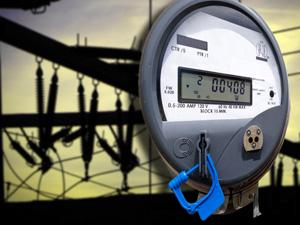
Shoving technology down citizens' throats is not going to solve SA's chronic short supply of electricity or ensure power is paid for.
This is according to energy expert Chris Yelland, who says government's failure to install basic infrastructure is the reason smart meter projects - such as the one just binned by the City of Tshwane - will not get off the ground.
In addition to the City of Johannesburg's plans to install smart meters so it can limit the effects of load-shedding, the Department of Cooperative Governance is looking for information on how it can run a pilot project in 12 municipalities to effectively create smart grids.
However, says Yelland, these projects are the equivalent of dithering as to whether diesel or petrol is a better solution to get a car to go faster when it is stuck doing 35km/h because the roads are full of potholes. He says the country needs to have the "basic infrastructure" - including support across all government departments - before it looks for technical solutions to SA's electricity woes.
Yelland says smart meters - or prepaid meters - are not a panacea to the country's problems. He adds, if there is one thing the controversial e-toll project in Gauteng has taught the country, it is that government cannot "ram" unaffordable solutions down people's throats, because there needs to be a social compact first. "It is wrong to think you can connect people to prepaid meters and solve the problem."
Citizen resistance
Should government unilaterally install smart meters, there will be unrest, like what is currently being seen in Soweto, says Yelland. Soweto residents are up in arms about Eskom's decision to install prepaid meters.
Yelland says the lack of a social compact is the reason the City of Tshwane's R27 billion project has failed. The city pulled its multibillion-rand smart meters contract on Tuesday, claiming in a statement that Afrisake's court application was "a spanner in the works" that rendered the project "financially and economically unsustainable".
Tshwane started rolling out smart meters in October 2013 and, under the project, service provider PEU had already installed almost 13 000 meters to large and small customers, and had been paid R830 million. The statement adds: "No further rollout of smart meters is anticipated beyond this point."
The city's aim in installing smart meters, as is the case with some other installations under way, was to improve revenue collection on its electricity provision.
Afrisake, an Afrikaans business rights watchdog organisation, has called the termination of the deal "confirmation of the fact" it was "quite right" the contract was illegal. The watchdog says, based on conservative calculations, the contract costs taxpayers in the Tshwane Metro more than R1.2 billion per year, yet made no difference to the city's ability to stop non-payment of electricity.
This situation Yelland ascribes to the fact that the meters were installed in homes and businesses that were already paying for power, and not in areas where revenue collection was a problem.
Share